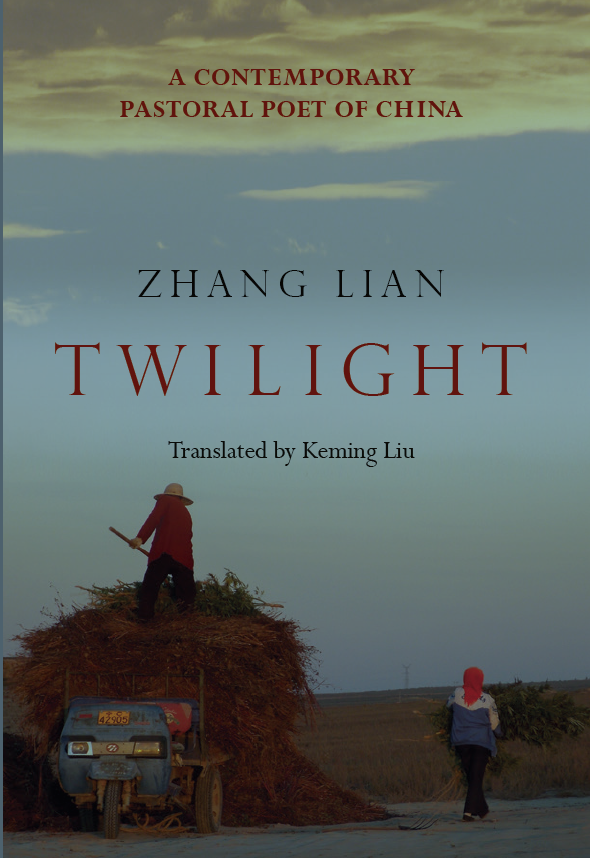New book, Twilight, documents the travails of farmers living on the edge of China’s dash to modernization

MEC English Professor Keming Liu, Ed.D., presents a pathbreaking volume of poems by a Chinese farmer and shepherd named Zhang Lian. Her new book, Twilight (Floating World Editions, September 2022), marks the world debut of the poetry of Zhang Lian, who tends sheep in a remote and impoverished region of China and is Dr. Liu’s second volume of contemporary Chinese poetry in translation.
Having had the pleasure of interviewing Zhang Lian in the very same places where his poetry was set and where he writes, I was able to dissect the original language and search for the most accurate English expressions to convey the poet’s intentions.
A hundred poems were selected from more than three thousand written by Zhang, a farmer, and shepherd who uses poetry to describe the harsh beauty of his environment and his daily struggle in the poorest region in China. Dr. Liu traveled thousands of miles to the Ordos desert to interview him and visit the cave where he grew up. Dr. Liu said meeting Zhang in the place that inspired his work was essential to get a feel for his life experience and the meaning of the works.
“Having had the pleasure of interviewing Zhang Lian in the very same places where his poetry was set and where he writes, I was able to dissect the original language and search for the most accurate English expressions to convey the poet’s intentions,” said Liu. “In addition to querying him almost line by line, I literally walked in his footsteps. I used information gleaned from my interviews to provide English readers with in-depth analysis and to enhance comprehension and appreciation.”
Pictures taken by both Zhang and Liu accompany the poems. The photos capture a disappearing topography now being lost to urban development, forced migration, and environmental devastation and help to document the travails of farmers living on the edge as China modernizes. Liu believes the footnotes and essays draw parallels for the reader between the Western and Eastern pastoral traditions and identify allusions to the ancient and modern poetics of the West and East, including Baudelaire and the Tang dynasty, in the context of a polished narrative that touches on the tenets of the pastoral tradition.

